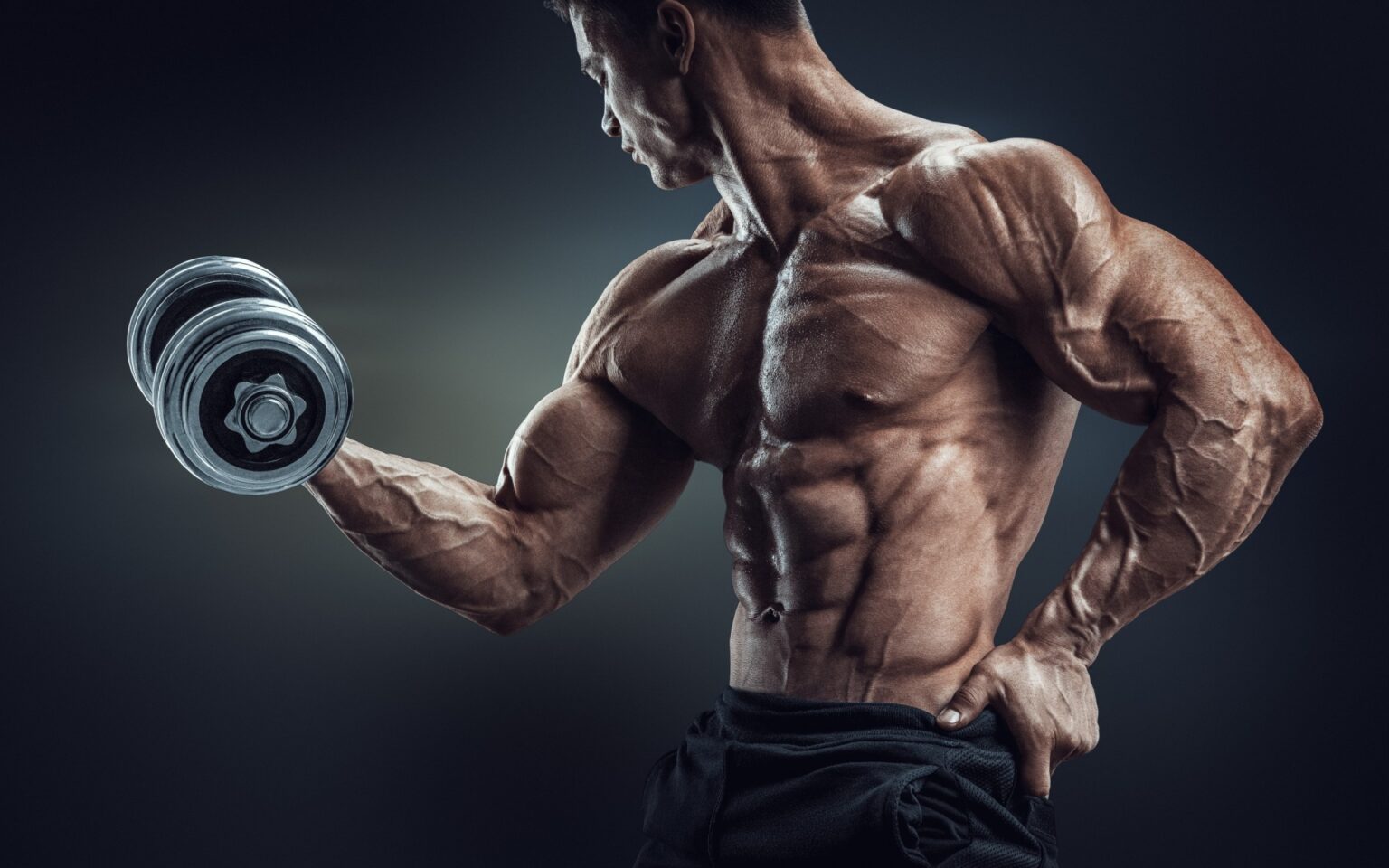It’s all about the T levels. Testosterone dictates everything we do in the gym, and limits or delivers the results we see from our training as well. But to many lifters, testosterone remains a mystery. Let’s examine where testosterone comes from, how it affects the body, and why it matters to bodybuilders!
Testosterone is a chemical released by your body which delivers many positive effects which are useful for all human beings, but of particular interest to you as a bodybuilder. Released by the testes upon orders from the hypothalamus gland in the brain, testosterone is a key hormone for body development and performance. Your levels begin to skyrocket as puberty hits, then level off once you reach your late teens. Once the mid-30s arrive, you will see a decline of your testosterone levels each year of 1 to 2%. As you reach old age, your levels may become decimated, at which point some medical intervention may be useful for helping you to maintain muscle size & strength.
Testosterone affects the body in many ways. Too much of it and there are some negative side effects. Too little and there are some very negative effects as well. Just right, testosterone is a great thing for the body. Testosterone affects the brain by contributing to libido and aggression. The kidneys are affected by stimulation of erythropoietin production. The sex organs see penile growth, spermatogenesis, and prostate growth and function. Testosterone affects the liver in terms of serum protein synthesis. Bone marrow stem cell stimulation is affected by testosterone levels, and in the bones themselves, the closure of epiphyses and the rate of linear growth is affected by testosterone levels. Even the rate and age at which you begin to encounter baldness is affected by testosterone levels.
For bodybuilders, testosterone is particularly important. Muscle size, strength levels, stamina, aggression, and effectiveness in the gym (as well as ability to recover following tough workouts) are affected by your testosterone levels. Red blood cell count is positively affected by higher testosterone levels. You can make use of 100 to 150 more grams of protein each day with elevated testosterone levels. For a bodybuilder, testosterone is king of everything we do. Training, nutrition, supplementation and rest is all geared toward a single goal – getting those T levels up!
As we age, our T levels are going to lessen, no matter how well we take care of ourselves. That’s just nature at work. HRT, or the use of hormone replacement therapy, is a very popular option utilized by many people as they reach their golden years and start to see their bodies deteriorate as a result of lagging testosterone levels. Every time you see a jacked bodybuilder in his 60s or 70s, you can rest certain he is using hormone therapy. However, many of the regular Joe’s you see at the grocery store may also be using hormone replacement to keep their testosterone levels higher. They might not be crushing the iron in the gym like the rest of the bodybuilders, but they are enjoying a greater quality of life as their result of higher testosterone levels, delivered with a patch, shot, or applicable cream.
The use of artificial testosterone by young athletes – namely the use of anabolic steroids by competitive lifters, is very common. Granted, these athletes (usually in their 20s and 30s) don’t NEED to use artificial testosterone. They have decent enough levels and they are able to train hard and build a lot of muscle without a great deal of effort. However, if they wish to compete in the arena or sport known as bodybuilding, then they will need to add the size needed to match their peers, and more importantly, maintain that muscle during a catabolic dieting down phase – which means artificial testosterone often comes into play. You don’t NEED to use steroids to compete – and if you are a teenager, you can really decimate your own hormone levels by using them. However, they are a part of the sport.
Now that you have a better understanding of the impact of testosterone upon the body, you know what you have to do next – start taking care of your body so that your T levels can remain as high as possible. Eat right, train hard, get plenty of rest, and monitor the performance of your body as age begins to take its toll.

